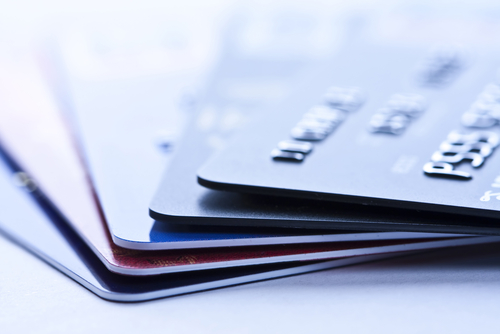Credit Cards & Loans
Is it the end for credit card rewards?

On 1 June, Capital One scrapped its cashback reward scheme. Are all credit card rewards now at risk?
In March, the EU Parliament voted to impose caps on the fees retailers can be charged for processing payments in European member states. Under the new rules, card issuers can charge retailers a maximum transaction fee of 0.3 per cent for credit card payments, and 0.2 per cent for debit card payments.
Capital One, the first issuer to publicly confirm that the new rules will mean an end to its credit card reward programmes, calculates that the overall loss to the credit card industry resulting from the changes could be as high as £2.4bn.
Other providers have followed suit since, with NatWest and RBS cutting the perks they give their credit card customers. Eesha Mohindra of MoneySavingExpert.com thinks this is just the beginning.
“Other card providers will follow, when rewarding their customers becomes too expensive,” she says.
“The future doesn’t look particularly bright for the rest of the rewards card market,” adds Nicholas Frankcom of uSwitch.com.
Elsewhere, Paul Lawler of MoneySuperMarket believes customers could end up losing out on more than rewards, noting that while the change is designed to help retailers and businesses by reducing costs, the unintended consequence could be a much worse deal for consumers, as credit card providers will probably “look for other ways to re-coup any lost income”.
A potential alternative for providers could be to retain some rewards, but make cards more expensive. Even if rewards are not retained, it’s possible credit card costs could increase; Mohindra thinks account charges, annual credit card fees and a rise in interest rates are possible.
Whatever happens, Lawler thinks it’s vital that credit card holders are wary of changes to their card’s terms and conditions, and prepared to switch to a new provider if a card no longer meets their needs.
“It’s more important than ever that people read any correspondence from their card provider carefully,” he concludes.
However, for the time being, all is not lost for credit card holders. The prospect of rewards being reduced or removed outright has arguably made the market even more competitive.
Frankcom advises consumers to be fleet-footed, and “make the most of it”, while Lawler says that some providers “are currently offering the best balance transfer and purchase deals we have ever seen.”
“There are still plenty of great deals out there, so if you think you’re not getting enough from your credit card, or the rug has been pulled from under your feet, chances are you can still find a rewarding card,” says Mohindra.
“It’s hard to predict who may cut next, so anyone thinking about getting a reward card should act sooner rather than later, to make the most of the great deals out there while they’re still available.”
For customers seeking cashback rewards, Mohindra recommends Santander’s 123 credit card.
“The card gives 1% cashback in supermarkets, 2% in department stores and 3% on petrol and rail travel – however, there is an annual fee of £24 for the card, so before applying, make sure the cashback you get will more than cover the yearly fee,” she says.
If you prefer a card without a fee, Frankcom recommends the American Express Platinum Everyday card.
“The Platinum gives 5% cashback for the first three months, then up to 1.25% after,” he concludes.
Consumers are advised not to use cashback cards as an excuse to spend more than necessary, or normal. Use the card for everyday spending, and ensure you set up a direct debit to pay the card off in full every month, to avoid paying interest that will outstrip any gain.
[article_related_posts]